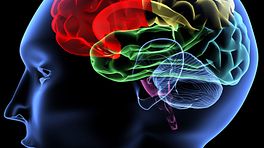For quite some time, clinical researchers have known that chronic back pain can lead to major depression, as discussed previously.1 Newer studies are now looking at how psychological variables such as depression and anxiety may be linked to the onset of a back pain problem. For example:
- Atkinson, Slater, Patterson, Grant, and Garfin (1991), in a systematic study of depressed male Veterans Administration chronic pain patients, found that 42% of patients experienced the onset of depression prior to the onset of pain, whereas 58% experienced depression after the pain began.2
- Polatin et al. (1993) reported that 39% of the chronic low back pain patients they evaluated displayed symptoms of pre-existing depression.3
- More recently, in a review of research studies in this area, Linton (2000) found that in 14 of the 16 reviewed studies, depression was found to have increased the risk for developing back pain problems.4
Depression Impacts Spine Surgery Outcome
Research has clearly demonstrated that non-physical variables such as depression, anxiety, thought patterns, and personality style can impact a spine surgery outcome (See Block, Gatchel, Deardorff & Guyer, 2003 for a review).5 Unfortunately, it appears that in many cases, having a major depression may not bode well for the outcome of a spine surgery.
For instance, as discussed by Block et al. (2003), spine surgery patients who are clinically depressed pre-operatively may continue to display depressive symptoms post-operatively and these can negatively impact the surgery outcome.5 Particular symptoms that may impede post-operative recovery include such things as low motivation, sleep disturbance, slower healing time, difficulty with physical rehabilitation and inability to perceive improvements (Block et al, 2003; Deardorff and Reeves, 1997).5,6
Pre-surgery Considerations for Patients with Depression
Block et al. (2003) discuss that, in looking at the issue of depression and spine surgery outcome, it is important to consider whether the individual is experiencing a "reactive depression" or shows a pre-injury history of more chronic depression.5 A reactive depression is defined as depressive symptoms in response to the chronic back pain and associated problems (loss of work, friends, etc). Reactive depression occurs in back pain patients who have no previous history of depression. However, many chronic back pain patients have a history of problems with depression even before the onset of the back pain. As reviewed previously, individuals with chronic depression may be at greater risk for developing a low back pain condition. It is also likely that this same group is at greater risk for a poorer outcome to spine surgery (Block et al., 2003).5
If a patient is facing a spine surgery and has a chronic back pain problem with significant depression, he or she may want to consider postponing the surgery until the depression can be treated. Treatment for depression is often part of a preparation for spine surgery program (See Block et al., 2003; Deardorff and Reeves, 1997).5,6
References
- 1.Worz, R. In: Pain in depression-Depression in pain. International Association for the Study of Pain: Clinical Updates, Volume XI, No. 5. 2003.
- 2.Atkinson, et al. Prevalence, onset and risk of psychiatric disorders in chronic pain patients: a controlled study. Pain. 1991;45:111-121.
- 3.Polatin PB, et al. Psychiatric illness and chronic low-back pain: The mind and the spine-which goes first? Spine. 1993;18:66-71.
- 4.Linton S. A review of psychological risk factors in back and neck pain. Spine. 2000;25:1148-1156.
- 5.Block A, Gatchel RJ, Deardorff WW, Guyer R. In: The Psychology of Spine Surgery. Washington, DC: American Psychological Association Press. 2003.
- 6.Deardorff WW, Reeves J. Preparing for Surgery: A Mind-Body Approach to Enhance Healing and Recovery. Oakland, CA: New Harbinger Publications, Inc. 1997.






